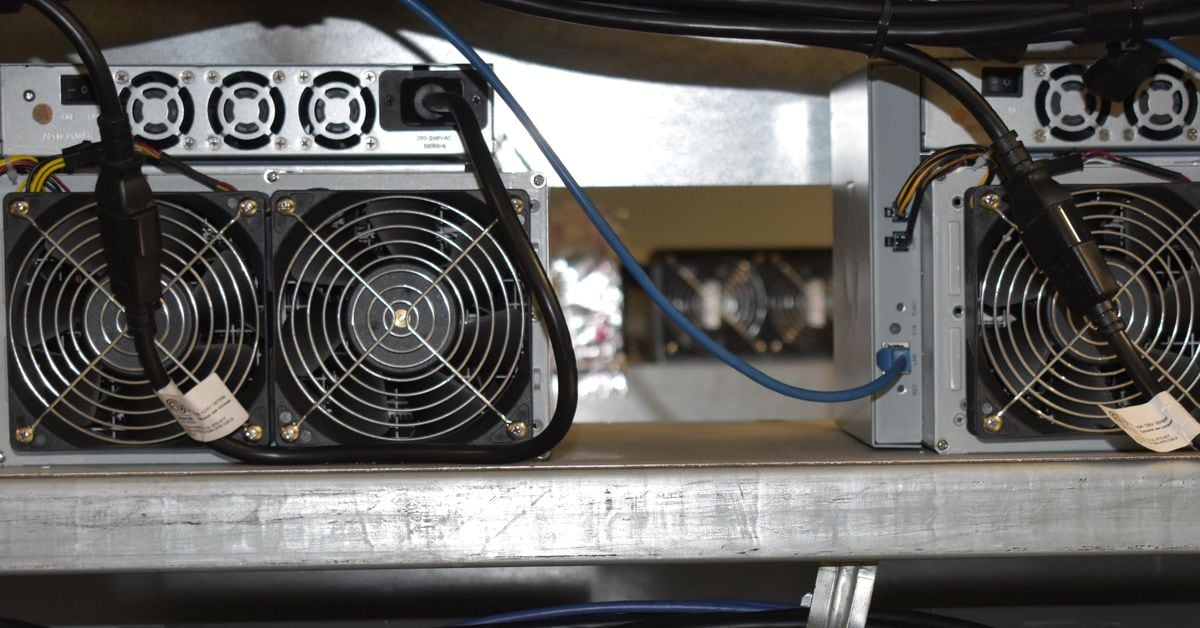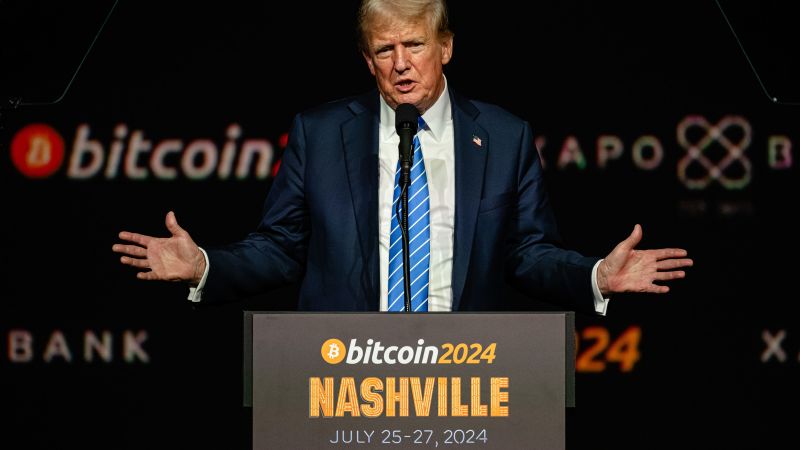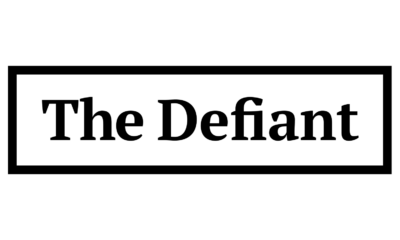Bitcoin
Inside latest crypto firm paying billions to end legal troubles

- Judge approves $4.5 billion settlement between Do Kwon, Terraform Labs, and the U.S. Securities and Exchange Commission.
- Binance previously settled with the U.S. in November for $4.3 billion.
- Recent spate of criminal convictions and fines mark resolution for multiple bad actors who helped upend crypto sector in 2022.
South Korean authorities are seeking the arrest of Do Kwon, co-founder and chief executive officer of Terraform Labs. His company is behind the now-collapsed terraUSD and luna cryptocurrencies. South Korean prosecutors are now seeking to freeze bitcoin linked to Kwon.
Woohae Cho | Bloomberg | Getty Images
Months before Sam Bankman-Fried and the FTX fraud was exposed, and years before Binance and its founder, Changpeng Zhao, would admit fault and settle with the U.S. for several billion dollars, Do Kwon was widely regarded as crypto’s top villain for nearly dismantling the entire sector with his failed U.S. dollar-pegged stablecoin.
It was May 2022, and Kwon was riding high. His company, Terraform Labs, was behind one of the most popular U.S.-pegged stablecoins on the planet, the venture funding was rolling in, his coins (dubbed terra and luna) were collectively worth tens of billions of dollars, and like Bankman-Fried, Kwon had landed a spot on the prestigious Forbes 30 under 30 list.
Perhaps in his greatest show of confidence in the empire he had built, just one month before it all collapsed, Kwon posted that he named his newborn daughter Luna. “My dearest creation named after my greatest invention,” he wrote.
And then it all came crashing down.
Whereas most stablecoins are backed up by a mix of cash and other assets to match the value of tokens in circulation, Kwon’s invention was instead backed by a complex set of code. When the algorithm failed in May 2022, it cost investors $40 billion in market value overnight, led to devastating losses to multiple investors, and contributed to the collapse of hedge fund Three Arrows Capital in June 2022, followed by crypto lenders Voyager Digital, then BlockFi, then Genesis — and, in a roundabout way, FTX too.
The stablecoin’s implosion also rocked confidence in the sector and accelerated the slide in cryptocurrencies already underway as part of a broader pullback from risk.
In the years since, U.S. criminal, civil, and bankruptcy courts have been cleaning up the wreckage, in part, by prosecuting bad actors and fining fallen firms. This week, a judge signed off on Do Kwon and his bankrupt Terraform Labs settling with the U.S. Securities and Exchange Commission for $4.5 billion. This comes after a jury unanimously found Kwon and his company liable for securities fraud following less than two hours of deliberation.
How Kwon, who is currently in the Balkans — or Terraform Labs, which remains in bankruptcy and, according to court testimony, only has around $150 million in assets — will be able to pay the fine remains unclear. But it does serve as the latest example of crypto’s bad actors atoning for past sins.
Read more about tech and crypto from CNBC Pro
In April, Binance’s founder and ex-CEO was sentenced to four months in prison after settling with the U.S. Justice Department, Commodity Futures Trading Commission and the Treasury Department for $4.3 billion in November. A few weeks before that, in March, the FTX founder and ex-CEO was sentenced to 25 years in prison. Celsius CEO Alex Mashinsky starts his jury trial later this year, in September.
The washout of crypto’s previous class of tycoons comes as the digital asset market matures and gains the backing of Wall Street’s top brass.
Token prices are in the midst of a bull run, with bitcoin reaching a new all-time-high above $73,000 in March. Meanwhile, some of the biggest names in traditional finance have jumped into crypto in the last year, as firms including BlackRock and Fidelity issue billions of dollars worth of spot bitcoin exchange-traded funds in the U.S.
Here’s a rundown of where the culprits who nearly blew up crypto are today, including those who remain on the lam.
A police officer escorts Terraform Labs co-founder Do Kwon after he served a sentence for document forgery in Podgorica, Montenegro, March 23, 2024.
Stevo Vasiljevic | Reuters
Kwon is currently living in a sort of legal and social purgatory in the Balkans.
The 32-year-old fugitive is holed up in Montenegro after months on the run that involved leaving Singapore for a mix of destinations, including Dubai, Serbia, and Montenegro. He’s been there since March of last year, following a failed attempt to flee from Podgorica to Dubai on a jet with a fake passport. Do Kwon is out on bail but bound to the Balkan state, until the country’s Supreme Court decides whether to ship him back home to South Korea to face trial, or to the United States, where the former crypto tycoon has been tried in absentia and found guilty on civil charges.
As for criminal repercussions for Kwon, it all depends on what the Montenegrins decide.
U.S. judges have been coming down hard on the crypto criminals who cost retail investors tens of billions of dollars, but South Korea doesn’t plan to go easy either, with one prosecutor reportedly saying that he expected Kwon to face the longest jail term for a financial crime in the country’s history, which could top 40 years.
The crime goes back to the fall of terraUSD (UST) and its sister token luna in May 2022, which had been one of the most popular U.S. dollar-pegged stablecoin projects.
Kwon had a knack for convincing people to buy what he was selling. Most notably, he sold his vision of a new kind of payment system that would upend the status quo and replace the world’s currencies.
TerraUSD (also called UST) and its sister token, luna, moved in lockstep. UST functioned as a U.S. dollar-pegged stablecoin meant to replace global fiat transactions, while luna helped UST keep its peg and earned investors a killing as it appreciated in value. (In 2021, luna was up 15,800%.) Traders were also able to arbitrage the system and profit from deviations in the prices of the two tokens.
The setup wasn’t new. Algorithmic stablecoins, which rely on a complex set of code rather than hard currency reserves to stabilize their price, had been a thing since at least 2015 — and the idea of staking crypto to earn an unrealistically high return exploded in popularity alongside the rise of decentralized finance, or DeFi.
But Kwon had a real touch for marketing. He cast himself in the likeness of a next-gen Satoshi Nakamoto (the pseudonymous name given to the founder of bitcoin), crossed with the social media swagger of an Elon Musk.
Kwon raised $207 million for his Terraform Labs, which launched luna and UST, and an aggressive online posture, in which he shunned the “poor” (that is, luna skeptics) on Twitter, drew in the masses. He inspired an almost cult-like following of self-identifying LUNAtics — including billionaire investor Mike Novogratz, who went so far as to memorialize his membership in this club with a tattoo on his arm.
Terra’s Anchor platform, which really helped to put UST on the map with its outsized return of 20%, could have been a big red flag for savvy investors. Many analysts believed it was unsustainable. At the time, government bonds were paying around 2% and savings accounts less than 1%. But investors piled in anyway, giving luna and UST a combined market value of almost $40 billion at one point.
Overnight, both tokens plunged in value and were essentially worthless. The failure was so massive, it helped drag down the entire crypto asset class, erasing half a trillion dollars from the sector’s market cap. It also dented investor confidence in the whole space.
It was reportedly Kwon’s second failed attempt at launching an algorithmic stablecoin, though his first effort saw losses in the range of tens of millions of dollars, rather than tens of billions.
“This case affirms what court after court has said: The economic realities of a product — not the labels, the spin, or the hype — determine whether it is a security under the securities laws,” said SEC Chair Gary Gensler in a press release.
“Terraform and Do Kwon’s fraudulent activities caused devastating losses for investors, in some cases wiping out entire life savings. Their fraud serves as a reminder that, when firms fail to comply with the law, investors get hurt. Terraform and Kwon fought our efforts to investigate – taking a fight over investigative subpoenas all the way to the Supreme Court. Thankfully, with this settlement, the victims of their massive fraud will now get some justice.”
NEW YORK, US – JANUARY 03: Sam Bankman-Fried leaves the court in New York, on January 03, 2023.
Fatih Aktas | Anadolu Agency | Getty Images
FTX founder Sam Bankman-Fried was sentenced to 25 years in prison in March for the massive fraud and conspiracy that doomed his cryptocurrency exchange and a related hedge fund, Alameda Research.
The sentence in Manhattan federal court was significantly less than the 40 to 50 years in prison that federal prosecutors wanted for Bankman-Fried, but it was much more than the five to six-and-a-half years suggested by his attorneys.
“There is a risk that this man will be in position to do something very bad in the future,” Judge Lewis Kaplan said before sentencing the 32-year-old and ordering him to pay $11 billion in forfeiture to the U.S. government.
“And it’s not a trivial risk at all,” Kaplan added.
Kaplan noted he has never heard “a word of remorse for the commission of terrible crimes” from Bankman-Fried.
The judge said that in the 30 years on the federal bench, he had “never seen a performance” like Bankman-Fried’s trial testimony.
If Bankman-Fried was not “outright lying” during cross-examination by prosecutors, he was “evasive,” Kaplan said.
“There is absolutely no doubt that Mr. Bankman-Fried’s name right now is pretty much mud around the world,” the judge said.
Jurors at trial likewise did not buy Bankman-Fried’s version of events, convicting him in November of seven criminal counts and holding him responsible for losing about $10 billion in customer money due to the securities fraud conspiracy.
Prosecutors said Bankman-Fried led a conspiracy to loot customer money to make investments, fund political donations to both Democrats and Republicans, and for his personal use, as well as to repay loans taken out by Alameda Research.
Bankman-Fried plans to appeal his conviction and sentence.
Ryan Salame, a former top lieutenant of FTX founder Sam Bankman-Fried, has been sentenced to 90 months, or seven and a half years, in prison, followed by three years of supervised release.
Three other people, who all testified against Bankman-Fried at trial, are awaiting their own sentencings after pleading guilty to criminal charges related to FTX and Alameda Research.
They are Caroline Ellison, the Alameda Research CEO who at one time dated Bankman-Fried; FTX engineering chief Nishad Singh; and Gary Wang, the co-founder and chief technology officer of FTX.
In May, the bankruptcy estate of FTX announced that almost all customers would get their money back — and more. The collapsed exchange said it has between $14.5 billion and $16.3 billion to distribute to creditors and that FTX users whose claims were $50,000 or less would receive approximately 118% of the amount of their allowed claim, according to the proposed reorganization plan.
Former Binance CEO Changpeng Zhao, center, departs federal court in Seattle on April 30, 2024.
Jason Redmond | AFP | Getty Images
Binance’s billionaire founder Changpeng Zhao has reported to a low-security federal prison in Lompoc, California, according to the Bureau of Prisons website.
Zhao was sentenced to four months in prison in April after pleading guilty to charges of enabling money laundering at his crypto exchange.
The sentence handed down to the former Binance chief was significantly less than the three years that federal prosecutors had been seeking for him. The defense had asked for five months of probation. The sentencing guidelines called for a prison term of 12 to 18 months.
“I’m sorry,” Zhao told U.S. District Judge Richard Jones before receiving his sentence, according to Reuters.
“I believe the first step of taking responsibility is to fully recognize the mistakes,” Zhao reportedly said in court. “Here I failed to implement an adequate anti-money laundering program. … I realize now the seriousness of that mistake.”
In November, Zhao, commonly known as “CZ,” struck a deal with the U.S. government to resolve a multiyear investigation into Binance, the world’s largest cryptocurrency exchange. As part of the settlement, Zhao stepped down as the company’s CEO.
Though he is no longer running the company, Zhao is widely reported to have an estimated 90% stake in Binance.
The scope of his alleged crimes included willfully failing to implement an effective anti-money laundering program as required by the Bank Secrecy Act, and allowing Binance to process transactions involving proceeds of unlawful activity, including between Americans and individuals in sanctions jurisdictions.
The U.S. ordered Binance to pay $4.3 billion in fines and forfeiture. Zhao agreed to pay a $50 million fine. The SEC was noticeably absent from the joint effort by the DOJ, CFTC and Treasury against Binance and its founder.
Voyager said it has roughly $1.3 billion of crypto on its platform and holds over $350 million in cash on behalf of customers at New York’s Metropolitan Commercial Bank.
Justin Sullivan | Getty Images
The fall of crypto hedge fund Three Arrows Capital, and lenders Voyager Digital and Celsius, can all be traced to the collapse of Kwon’s stablecoin project.
When 3AC’s lenders asked for some of their cash back in a flood of margin calls, the money wasn’t there. Many of the firm’s counterparties were, in turn, unable to meet demands from their investors, including retail holders who had been promised annual returns of 20%.
The three companies all went bankrupt and are currently at various stages of settling their debts, with Celsius having just emerged from bankruptcy in January.
Celsius’ ex-CEO Mashinsky faces criminal trial in the U.S. later this year, while 3AC co-founder Kyle Davies says he’s not sorry for the collapse of his fund, and has so far managed to avoid jail time altogether by bouncing around the world, unlike his co-founder, Su Zhu, who served time in a Singaporean prison.
Bitcoin
Big Tech Outperforms Bitcoin (BTC) as Trump Deal Weakens Token

Bitcoin has lost out on an asset rally fueled by positive comments from the Federal Reserve, while a tight US election race casts doubt on whether Donald Trump will get the chance to implement his pro-crypto agenda.
The digital asset fell 2.4% on Wednesday, following a Fed-fueled surge in an index of megacap tech stocks Magnificent Seven by one of the largest margins in 2024. The token retreated further on Thursday, changing hands at $63,750 as of 6:10 a.m. in London.
Bitcoin
‘This is huge’ — Billionaire Mark Cuban issues ‘incredible’ Bitcoin and crypto prediction amid price slump

Bitcoin
Bitcoin
came back with a vengeance this year when former President Donald Trump Cryptocurrency boosts US presidential election in November with ‘revolutionary’ plan.
The price of bitcoin has surged to more than its all-time high in recent months, surpassing $70,000 per bitcoin and triggering a wave of mega-optimistic predictions about the price of bitcointhough it fell again this week, falling below $65,000 after the Federal Reserve kept interest rates steady.
Now, as Elon Musk suddenly breaks his silence on bitcoin and cryptocurrenciesBillionaire investor Mark Cuban called a California plan to digitize 42 million car titles using blockchain an “incredible step forward” and “huge” for cryptocurrencies.
Sign up for free CryptoCodex now—A daily five-minute newsletter for traders, investors, and crypto curious people that will keep you up to date and ahead of the bitcoin and crypto bull market
Mark Cuban, famous Shark Tank investor and billionaire owner of the NBA team Dallas Mavericks, has… [+] called a cryptocurrency update “amazing” amid bitcoin’s price slump.
Getty Images
The California Department of Motor Vehicles (DMV) has digitized 42 million car titles using blockchain, it was reported by Reuters, through technology company Oxhead Alpha on the Avalanche blockchain and designed to detect fraud and facilitate the securities transfer process.
“This is an incredible development for crypto,” Cuban, best known as an investor on TV’s Shark Tank and owner of the Dallas Mavericks NBA team, posted on X, joking that U.S. Securities and Exchange Commission (SEC) Chairman Gary Gensler could sue the state as part of his hostility toward cryptocurrencies and blockchain technology.
“The reason this is huge for crypto is because people who hold the tokens will have an app with an Avalanche wallet,” Cuban said. “Tens of millions of Californians having and using a crypto wallet in the next five years, or however long it takes, normalizes the use of wallets and crypto.”
John Wu, president of Avalanche developer Ava Labs, told Reuters that California’s DMV is “creating a wallet that you can download on your phone.”
Sign up for CryptoCodex now—A free daily newsletter for the crypto-curious
Bitcoin’s price has rallied this year, triggering a wave of bullish bitcoin price predictions from… [+] people like billionaire Mark Cuban.
Forbes Digital Assets
Last month, Cuban predicted that if the US dollar falls as the global reserve currency, bitcoin could become “a global ‘safe haven’” and a “global currency.” potentially sending the price of bitcoin to a much higher level.
According to Cuban, bitcoin could become what its most ardent supporters “envision” — a means “of protecting our economies… This is already happening in countries facing hyperinflation.”
The price of bitcoin has skyrocketed over the past year, largely due to the world’s largest asset manager, BlackRock, leading a bitcoin attack on Wall Street.
Bitcoin
Bitcoin (BTC) miner Riot Platforms (RIOT)’s second-quarter loss widens to $84.4 million as costs rise

Please note that our Privacy Policy, terms of use, cookiesIt is do not sell my personal information Has been updated.
CoinDesk is a awarded media outlet that covers the cryptocurrency industry. Its journalists follow a strict set of editorial policies. In November 2023, CoinDesk has been acquired by the Bullish group, owner of Optimistica regulated digital asset exchange. The Bullish Group is majority owned by Block.one; both companies have interests CoinDesk has a portfolio of blockchain and digital asset businesses and significant holdings of digital assets, including bitcoin. CoinDesk operates as an independent subsidiary with an editorial board to protect journalistic independence. CoinDesk employees, including journalists, may receive options in the Bullish group as part of their compensation.
Bitcoin
Why Trump Wants the US Government to Have a “National Stockpile” of Bitcoin

At a national bitcoin conference in Nashville, Donald Trump finally laid out some of his crypto policy proposals, including a long-awaited part of his plan — building a strategic bitcoin reserve. CNN’s Jon Sarlin explains what it is and why the crypto industry wants it.
-

 News12 months ago
News12 months agoBitcoin soars above $63,000 as money flows into new US investment products
-

 DeFi12 months ago
DeFi12 months agoEthena downplays danger of letting traders use USDe to back risky bets – DL News
-

 News12 months ago
News12 months agoFRA Strengthens Cryptocurrency Practice with New Director Thomas Hyun
-

 DeFi12 months ago
DeFi12 months agoZodialtd.com to revolutionize derivatives trading with WEB3 technology
-

 Markets12 months ago
Markets12 months agoBitcoin Fails to Recover from Dovish FOMC Meeting: Why?
-

 DeFi1 year ago
DeFi1 year ago👀 Lido prepares its response to the recovery boom
-

 Markets1 year ago
Markets1 year agoWhale Investments in Bitcoin Reached $100 Billion in 2024, Fueling Crazy Investor Optimism ⋆ ZyCrypto
-

 Markets1 year ago
Markets1 year agoWhy Bitcoin’s price of $100,000 could be closer than ever ⋆ ZyCrypto
-

 DeFi1 year ago
DeFi1 year agoPancakeSwap integrates Zyfi for transparent, gas-free DeFi
-

 Markets1 year ago
Markets1 year agoWhales are targeting these altcoins to make major gains during the bull market 🐋💸
-

 DeFi1 year ago
DeFi1 year ago🏴☠️ Pump.Fun operated by Insider Exploit
-

 News1 year ago
News1 year agoHow to make $1 million with crypto in just 1 year 💸📈












